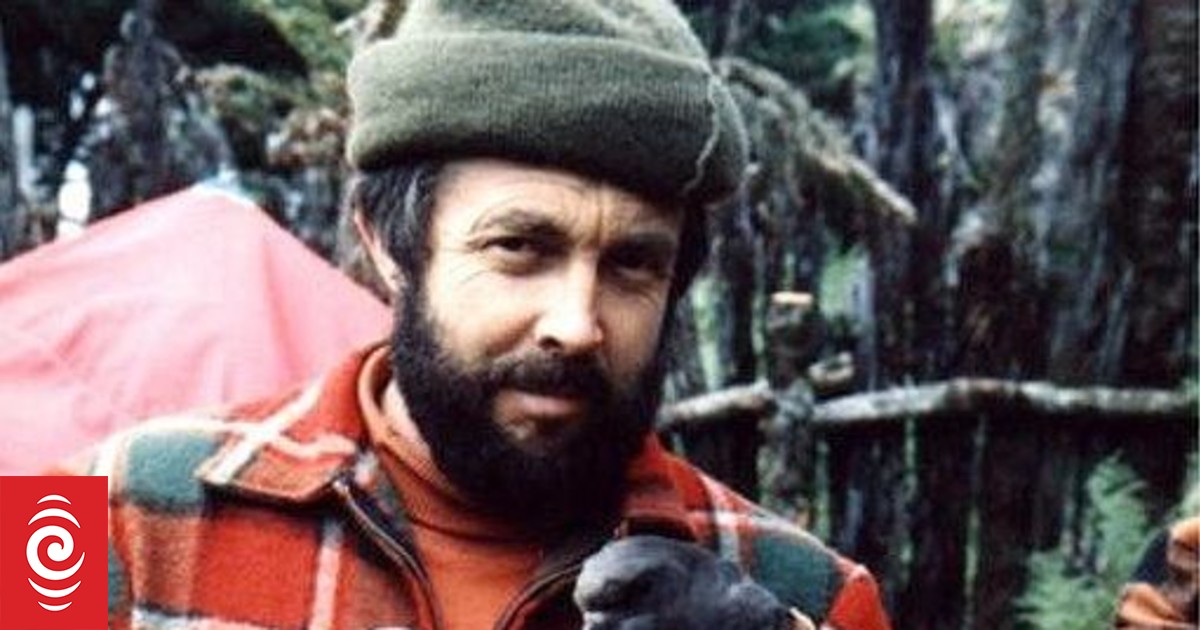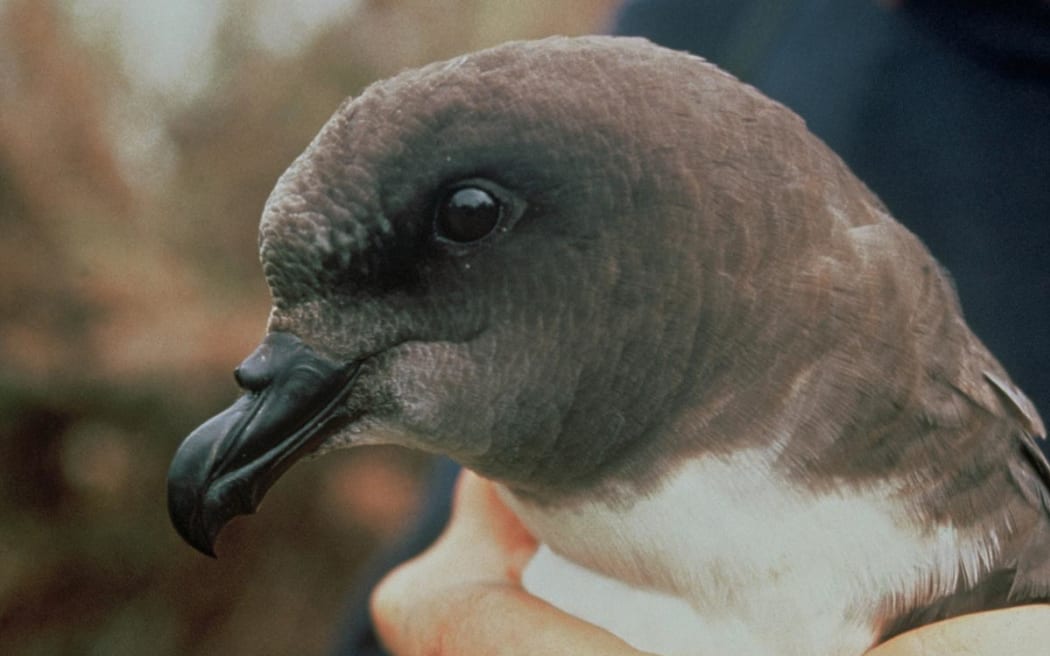
An adult tāiko.
Photo: DOC / Graeme Taylor
A Northland conservationist who rediscovered one of New Zealand’s most endangered and elusive seabirds has died aged 87.
The Chatham Island tāiko, or magenta petrel, was thought to have become extinct in the 19th century, but ornithologist David Crockett was convinced a few had survived – and he was determined to find them.
It took at least eight trips to the Chathams, about 800km east of mainland New Zealand, and many years of work to prove he was right.
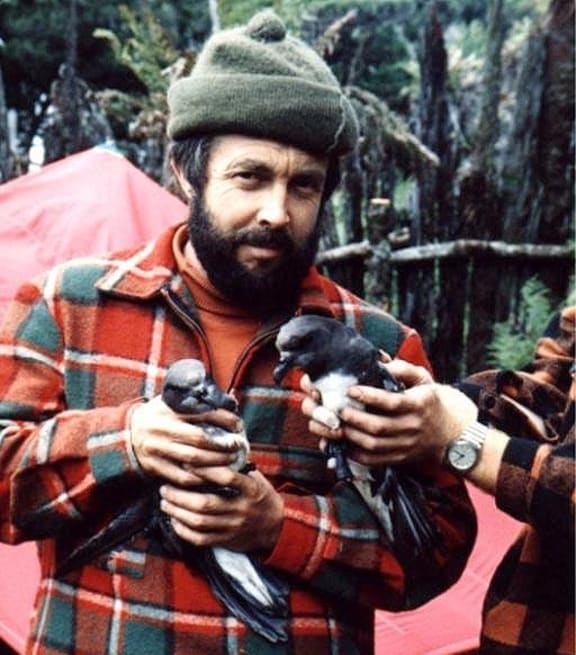
David Crockett with a pair of tāiko, pictured in 1978.
Photo: Chatham Island Tāiko Trust
The bird was rediscovered on 1 January, 1978, more a than a century after it had been deemed extinct.
Chatham Island Tāiko Trust chairwoman Liz Tuanui said Crockett became convinced tāiko clung to survival near Tuku, in the southwest corner of the main island.
Interviews with local landowners, who told him about a distinctive bird call they did not recognise, persuaded him he was on the right track.
“He was absolutely determined. When he was here a lot of islanders said he was chasing ghosts and other experts said they weren’t here, they were elsewhere.
“With the research David had done since he was a boy, he put it all together. It was a big jigsaw. He was adamant the bird landowners had heard at Tuku was the tāiko.”
Tuanui said Crockett had already made a couple of trips to the island when in 1971 her parents-in-law invited him to set up camp in the bush on their land.
That had since grown into Tāiko Camp with a field centre and huts sleeping up to 10 people.
Later Manuel and Evelyn Tuanui donated 1000ha of their land to the Crown, which is now the Tuku Nature Reserve and subject to intensive predator control and monitoring.
They also set up the Chatham Island Tāiko Trust to continue their, and Crockett’s, work.
Tuanui said the birds had raised about 35 fledglings in the current season, a number she described as “huge” given the previous record was about 15.
The entire world population of tāiko was 150-200, she said.
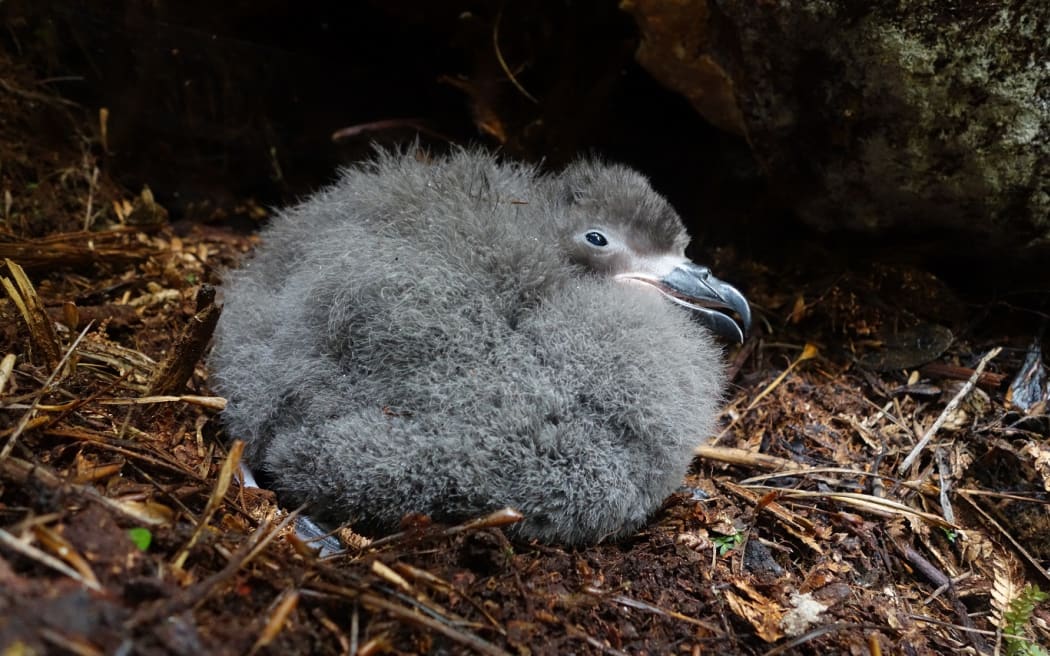
A tāiko chick.
Photo: Dave Boyle
Tuanui said Crockett’s contribution to conservation and the Chathams was “massive”.
“He was very well known on the island. He had lots of stories, lots of laughs. He was an icon, a legend. A tarahina [a tree endemic to the Chatham Islands] has fallen.”
Crockett was also great supporter of young people and learning, she said.
Many of the students who had stayed at Tāiko Camp had gone on to forge careers in museums or the Department of Conservation.
Crockett’s collection of tāiko-related items was being shipped to the Chathams, where it would be displayed at the museum in Waitangi, the main settlement.
In accordance with his last wishes, his ashes – and those of his late wife, Ruth – would be scattered on the island, she said.
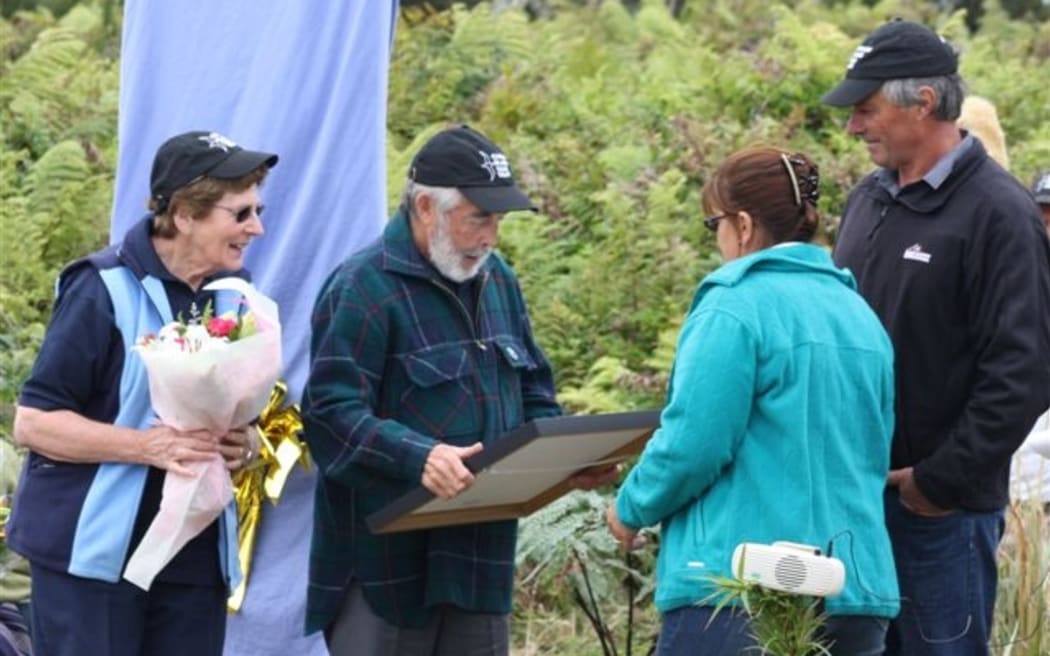
Ruth and David Crockett receive flowers and a certificate from the Chatham Island Tāiko Trust, in April 2013.
Photo: Chatham Island Tāiko Trust
Crockett’s work all voluntary – historian
Auckland naturalist Brian Parkinson, who is writing a book about New Zealand’s outstanding conservationists, including Crockett, described him as one of the country’s most dedicated ornithologists.
He travelled to the Chathams about eight times before he managed to prove the species still existed, and even then it took another nine years to find the burrows where they nested.
“Nobody believed the bird still existed, but when he was still a student he recognised some bones in a museum collection and realised it must still be around.”
One of the remarkable things about Crockett was that he did all his work with the tāiko as a volunteer.
Together with the Tuanui family, he was responsible for the species’ salvation.
Parkinson said the bird’s other name, magenta petrel, was not due to its colouration.
Magenta was the name of an Italian research vessel whose crew shot a tāiko off the Chathams in 1867.
That was the last sighting of a Chatham tāiko until Crockett’s rediscovery in 1978.
David Edgar Crockett, QSM, died at Puriri Court Rest Home in Whangārei on 24 August. He will be farewelled at Christ Church in Te Kamo at 11am on Thursday.

